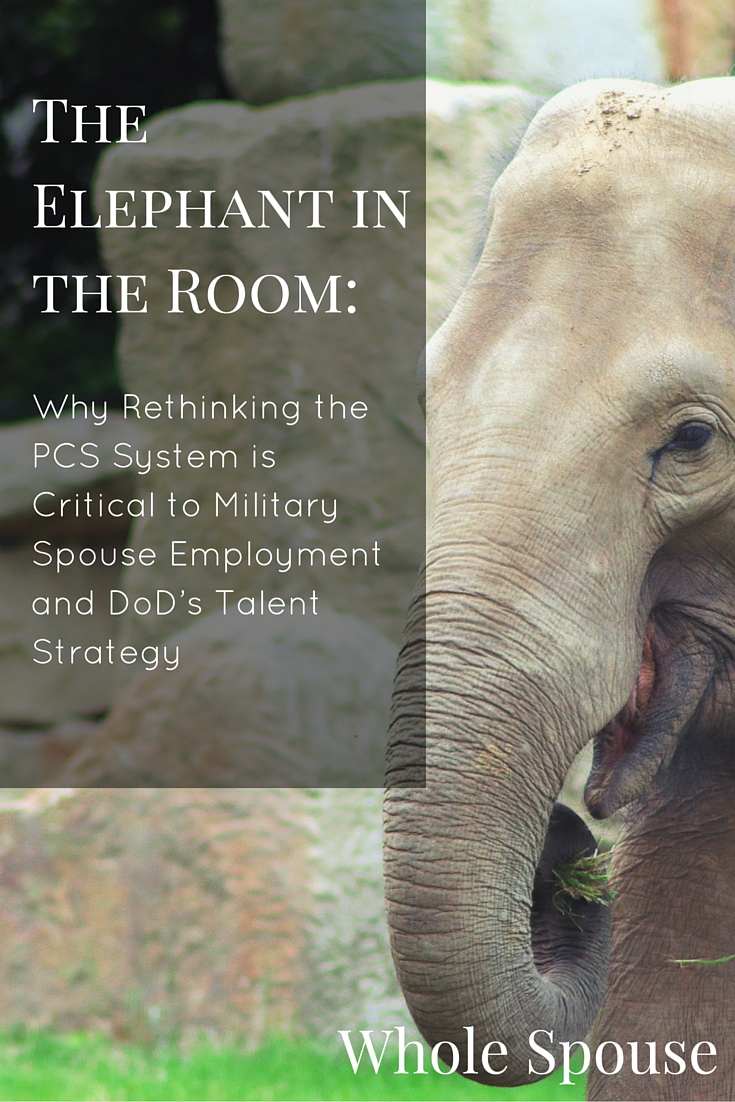
I was excited when I heard about Secretary Carter’s Force of the Future initiative, focused on developing a new talent strategy for the military. (Yes, I am a bit of a wonk and I do get excited about things like policy proposals.) I was also hopeful that there would be something in this Force of the Future that would make the military lifestyle more viable for families with two breadwinners. That was my hope anyway…
But as I scrolled through the details of the announcement, my heart sank. Where was the focus on military spouse employment, or the acknowledgement that the current permanent change of station (PCS) system is a major barrier to spouses being able to maintain and build careers? I am not the first to point out that Carter’s new plan does little to improve life for military families, but I want to highlight this issue in particular. Ignoring a problematic PCS system is a huge missed opportunity in my book, and here’s why.
First, the facts all line up. Multiple studies have shown that frequent relocation is one of the most significant barriers to spouse employment and earnings. (And if you live this military life, you don’t need a research study to prove that to you!) We also know there’s a correlation between military spouse employment and retention of the military member. In other words, spouses who face employment challenges because of the military lifestyle are less likely to support a decision to stay in. Finally, although the average military assignment has gradually been getting longer in recent years, the average cost of each PCS continues to climb, making each move a more costly part of the budget in increasingly tight times. Adding this all up, the current PCS system impedes spouse employment, impacts retention, and costs the taxpayers a lot of money.
So why not address the elephant in the room and take a fresh look at the relocation policy?
My opinion is that frequent relocation has become so much a part of military culture that most people in the military community, including those in leadership, assume it cannot be significantly changed. It is treated as a given, a fact of military life that is central to our culture. But what if it were simply one variable, a feature of the way military work is designed, but malleable like a piece of clay that could be molded to fit the need?
I don’t pretend to be an expert on military operations by any means, and I know there are good operational reasons for the relocation policy. At the same time, the current way may not be the only option, or even the best way. If we want to have a serious conversation about talent, then we can’t ignore the lost potential of unemployed and underemployed spouses, or service members who cut their military careers short to make their family lives work.
Moving around the world may be a big part of military culture, and part of an adventurous lifestyle that many military families find attractive. But it is also problematic if we are going to move beyond the traditional single breadwinner model that is no longer the norm. If DoD is going to keep up with the times and attract the best talent, we need to be willing to name the elephant in the room.
Michelle is a consultant, coach, and researcher specializing in military spouse employment. Contact her at michelle@stillmehta.com.
